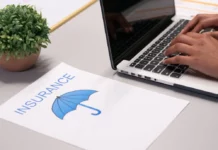Introduction
The startup world is a wild place, and the people who participate in it are some of the most innovative and intelligent minds in history.
If you’re considering how to secure your business but aren’t sure where to begin, you’ve come to the right place.
Security affects every aspect of your business, from hiring procedures to the dependencies you import, but increasing security has a price: Systems that are more secure are frequently harder to use.
Today we are going to overview how to establish a secure system for your new business.
Know who you are dealing with
When you are being approached by a potential partner, it is important to know who you are dealing with. This includes:
- The person’s name and address.
- Their email address and social media accounts (such as Facebook or Twitter).
- Check their ID (such as a passport or driver’s license) if they say that they are from another country. You can also check the company they say they work for by searching for them on Google or LinkedIn., That way, if your potential partner has provided false information about themselves or their organization, it will become clear before things go too far!
Know the industry you are dealing with
The first step to a safe startup is to know the industry you are dealing with. This means being aware of the risks, scams, and red flags that can happen in this space. You should also be aware of the consequences for both parties if something goes wrong.
In addition, you should be aware of the legal implications of what you’re doing. This may be different depending on whether you are an investor or a borrower.
For example, if you’re an investor, you need to be aware of the risks of investing in startups. This means understanding that it is a high-risk investment and not all projects will succeed. You should also be aware of the fact that there are no guarantees for investors; this means that your money may be lost or stolen.
Be aware of the risks
When it comes to startups, there are a number of risks that you should be aware of. These include:
- Identity theft. This is when someone steals your personal information and uses it for their own purposes, such as opening credit cards in your name or stealing money from bank accounts.
- Phishing emails. This type of scam involves sending emails that appear legitimate but actually contain malware that can infect computers and steal data from them (for example, passwords). The message may also ask you to provide personal information such as credit card numbers or social security numbers–don’t do this! Always check the sender’s email address before responding; if it looks suspicious at all then don’t click any links in the message! You can even forward suspicious emails directly to spam@uceprotectsmekeepingmeoutoftroubleandgettingmadatyouforsendingthemtome@gmailcom so we can investigate further 🙂
- Shipping frauds occur when someone purchases something online using stolen credit cards or checks made out by someone else without permission; then they ship these products off somewhere else without paying for them themselves (or even receiving them). This creates problems because now both parties have been ripped off: You lose money while whoever bought those items didn’t get what they paid for either.”
Set up a fraud prevention system
Fraud prevention is the best way to ensure that your startup is protected from unscrupulous individuals who want to take advantage of you. Startups should use fraud prevention systems that are tailored to their business, industry, and customers.
These systems should be able to detect fraud in real-time and stop it before it happens. They should also be able to predict which customers are likely targets for fraudsters and help you prevent these attacks before they happen.
The best fraud prevention systems are ones that are tailored to your business, industry, and customers. They should be able to detect fraud in real-time and stop it before it happens, as well as predict which customers are likely targets for fraudsters and help you prevent these attacks before they happen.
The best way to avoid being scammed is to take precautions.
The best way to avoid being scammed is to take precautions.
- Identity verification: Always use a secure website and check that it’s using HTTPS (the “S” stands for “secure”) in your browser’s address bar. Never provide sensitive information through email or over the phone, as this can be intercepted by hackers who want to steal your identity and money. If someone asks you for information like credit card numbers or bank account details, ask them why they need it before giving out any details — if they can’t explain why then chances are something fishy is going on!
- Know the industry: It’s important that everyone knows how their startup works so that if anything goes wrong they know who to contact at all times but also because sometimes people get scammed simply because they didn’t know what was happening around them! This could either be because of inexperience or just plain naivety which makes me wonder whether some startups really do care about their customers’ well-being…
Conclusion
We hope that this guide has helped you to understand the risks associated with cryptocurrency trading and how best to avoid being scammed. The key takeaway is that there are no shortcuts when it comes to protecting yourself from fraudsters. You have to take precautions and make sure that you know who you’re dealing with before parting with any money!


I am a passionate blogger and developer sharing business tips. I Help others solve programming problems on various online forums.
You must follow these marketing tactics to promote your business online.























